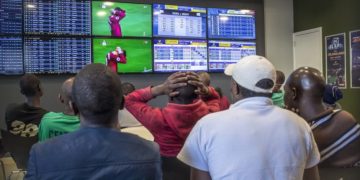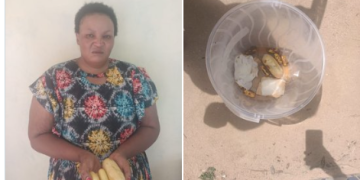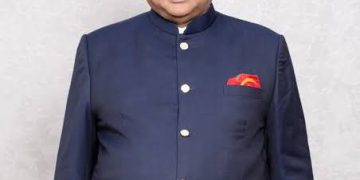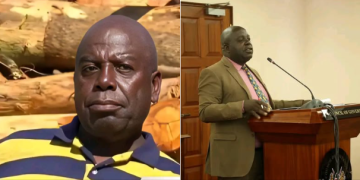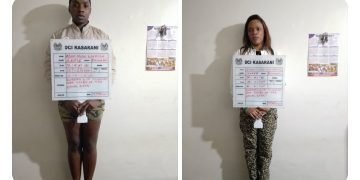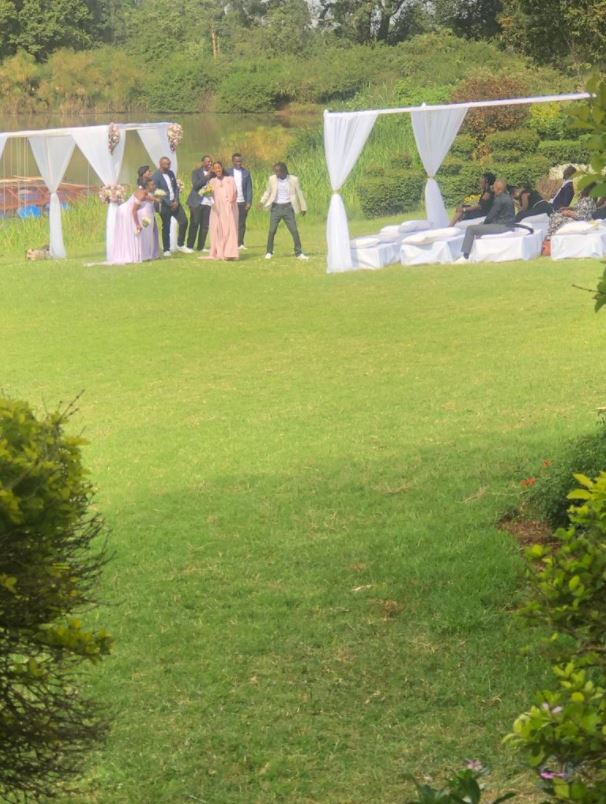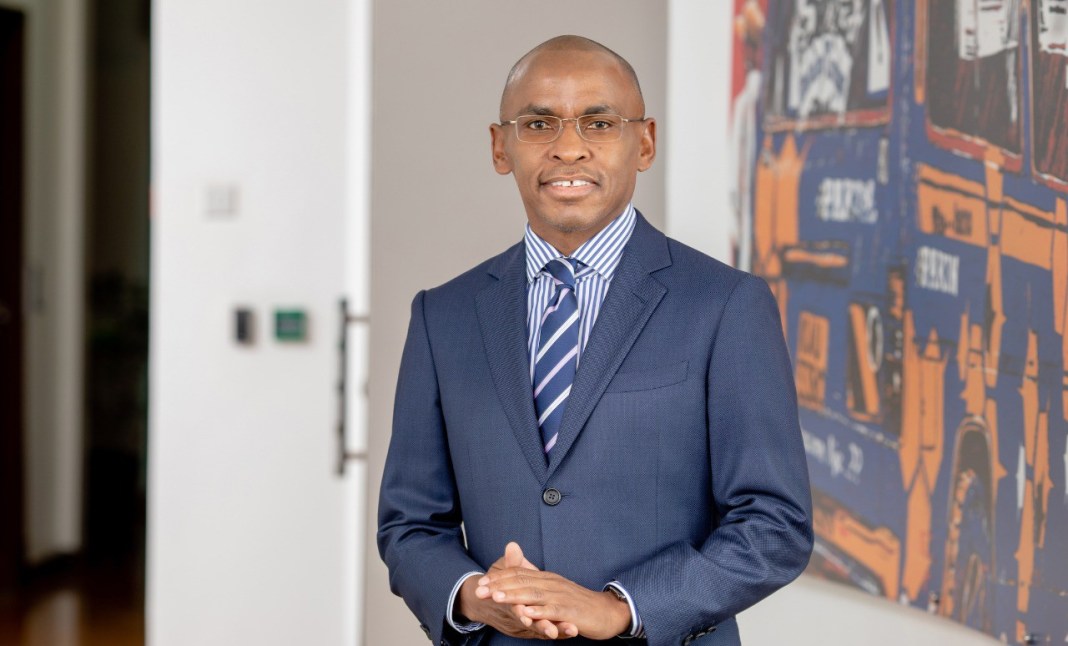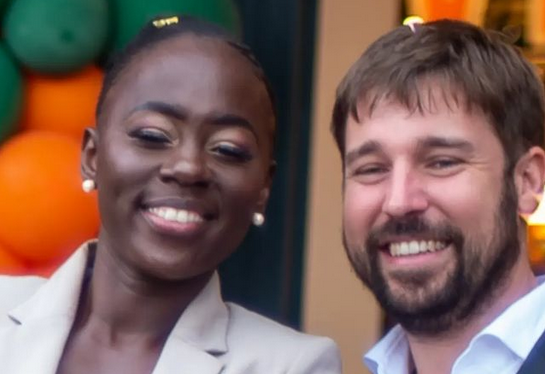You might know him from your TV screens as a political analyst or from seeing him representing high-profile clients in court.
Lawyer Danstan Omari is not the typical advocate in the corridors of justice, as he has brought a fresh approach to tackling cases in court.
He is the first lawyer to conduct a divorce case live on TV, when in the past, those cases were seen as private matters between the two parties involved.
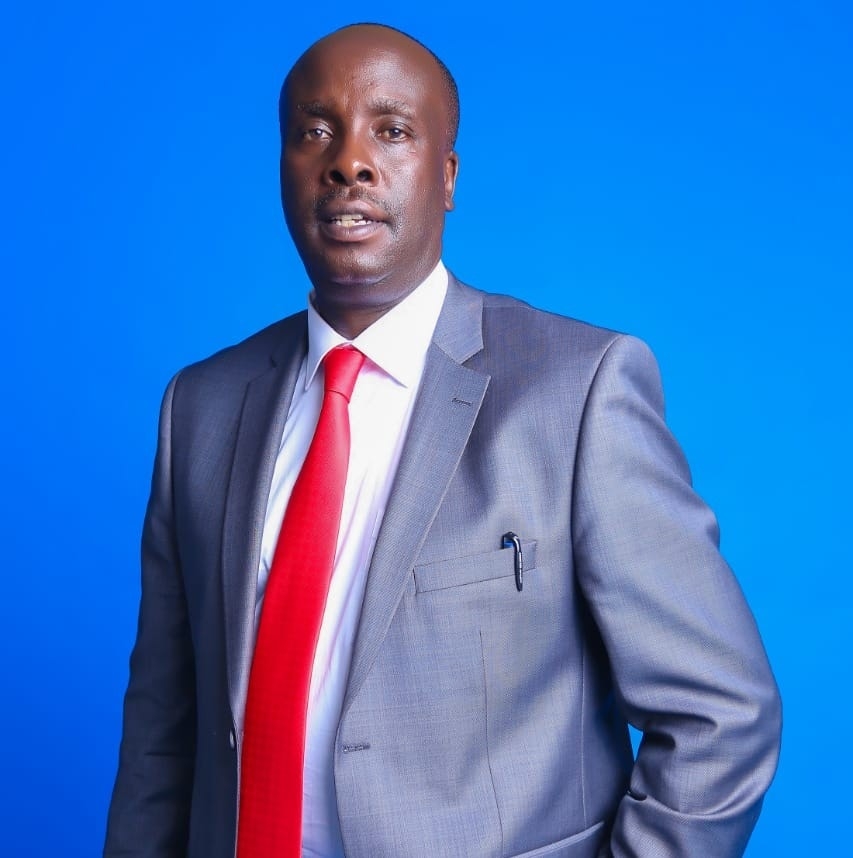 Omari represents Marriane Kitany in her divorce case against Meru Senator Mithika Linturi, which has been the talk of town since it began.
Omari represents Marriane Kitany in her divorce case against Meru Senator Mithika Linturi, which has been the talk of town since it began.
Whenever he appears in court, he brings interesting perspectives to the different cases he handles that cause humour in the proceedings.
Recently he was accompanied by a nun to the Kitany divorce case, and later he appeared with former magistrate Brian Khaemba in court.
In less than 10 years since he was admitted to the bar, Omari has represented virtually every prominent Kenyan personality.
From Deputy President William Ruto in the famous Abby case, former Machakos Senator Francis Muthama divorce case, controversial Baby Kiano case, Tob Cohen, private investigator Jane Mugo, former Nyandarua Governor Waithaka Mwangi, Busia Governor Sospeter Ojaamong, Malindi MP Aisha Jumwa, magistrate Edgar Kagoni to Bishop David Gakuyo of Ekeza Sacco.
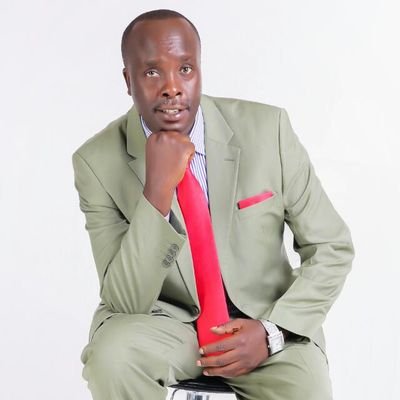
Omari is in almost every case that is trending in court, be it corruption, family, murder—basically, you are most likely to find him representing a client in any hot new case in court.
However, the former high school teacher had to jump many hurdles to pursue his lifelong dream of being a lawyer. His dream was put on hold when in high school, the principal and his guardian conspired and changed his law entry to Bachelor of Education since no one from his school had ever been admitted to study law.
He had no option but to report to Kenyatta University to study education and graduated in 1990.
But he still had dreamt of studying law. Despite the circumstances, he believes the lecturers instilled in him a fighting spirit.
“Some of my classmates, you can see them all over, having made it in life. They include Interior CS Fred Matiang’i, who was my classmate in secondary and university, Governor Sospeter Ojaamong, politcial analyst Herman Manyora and Planning PS Saitoti Torome,” Omari says.
After I left teaching, I became a children’s officer and worked with families as a government officer. So by the time I started practising as an advocate, I was well grounded on the laws on marriage, children and divorce.
In 1992, he was posted to teach at Kiabonyoru Secondary School in Nyamira. He would go on to teach for more than 10 years.
In 2005 he enrolled for a bachelor’s degree in law at the University of Nairobi. He used to commute daily from Muthurwa Secondary School in Kiambu to attend lectures.
In his second year he got a job in Kirinyaga as a children’s officer, which also meant commuting daily to attend classes at UoN.
He travelled 165km daily to and from Kirinyaga to attend classes. In 2008, Omari graduated with a law degree. The next year, he enrolled at the Kenya School of Law and registered for a master’s degree at UoN.
It wasn’t easy juggling between his classes at the two institutions and his work in Kirinyaga, but they all had to be done.
Currently, he is a lecturer at Catholic University of East Africa, where has worked since 2012. He teaches professional ethics, jurisprudence, consumer rights and rights of a child.
We sat down with lawyer Danstan Omari for a candid interview in his office, where he opened up about his career and journey to being one of Kenya’s most-sought-after lawyers.
Why did you choose law?
I chose law because I felt I must have been born to be a lawyer, so I developed the passion to pursue law. Although some incidents did happen that made me unable to follow the course of justice, I strongly believe that I wanted to do law from day one.
Being a former high school teacher, do you miss teaching?
I don’t miss teaching. The fact is I outgrew teaching, but I still love imparting knowledge to young people, and that’s why I teach at Catholic University of East Africa.
Teaching helped me to develop some skills that are not available in law, such as philosophy, critical thinking, sociology, child development and how to be a good listener.
Do you fear for your life because of the nature of your job?
I don’t think there is ever a dangerous case to an advocate because there is no personal interest in all these matters that we handle. But there are some cases that end badly. For example,in the Tob Cohen matter ended very badly. My client was murdered and dumped in a septic tank.
I have dealt with the Linturi-Kitany divorce case. It looks dangerous but it’s not. I have also dealt with private investigator Jane Mugo’s case, where she is against top cops.
I don’t at any one time feel threatened because I do my job. I’m honest with my clients and passionate with my work, it’s just a job.
We see you in high-profile cases, so can Wanjiku afford you?
Well, I will charge fees because I don’t work for free. Of course there are limits and guidelines on how much fees we should charge, but I also do pro bono cases in the children’s court. In a week, I handle two to three matters for free, representing kids who don’t have school feels or can’t get food.
I believe if you don’t pay an advocate very well, he or she will not be motivated to perform. For example, in my case, I report on my desk here at 5.30am and I leave at around 10 or 11pm, preparing and doing research.
I plan thoroughly for my cases. I normally hold pre-court conferences with my associates to prepare for the cases. It’s not easy representing powerful clients. You put in a lot of effort and you must be remunerated well.
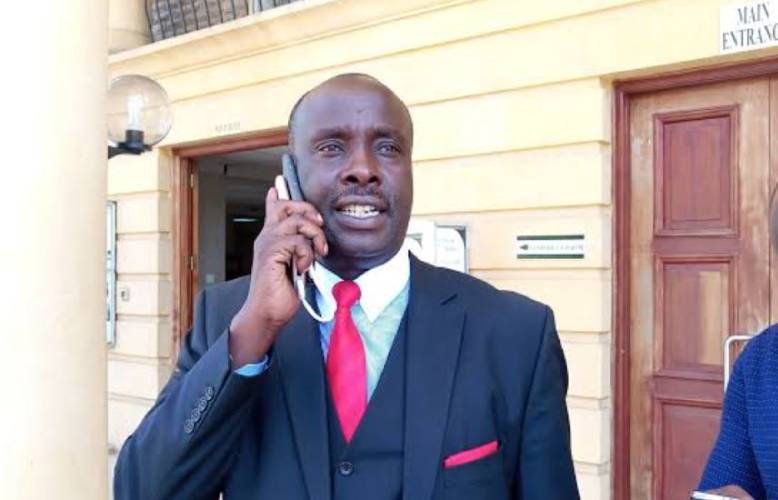
I am married to a beautiful wife, Pamela. She is a communications lecturer and we are blessed with two sons.We enjoy a good relationship and she is very supportive.She paid for my master’s degree and I later paid for hers. Basically, we have been involved in each other’s success story.
You are known more for handling family matters. Is there a specific reason?
As a teacher, I dealt with a lot of family issues. I was a counsellor, a deputy principal and I got to understand society can’t function without the family unit.
After I left teaching, I became a children’s officer and worked with families as a government officer. So by the time I started practising as an advocate, I was well grounded on the laws on marriage, children and divorce.
You work with very interesting people in your cases, including a nun and a former magistrate, why so?
Practice originally was a straightforward thing that didn’t have a sense of humour; it was more of a mechanical type of routine.
I came to practice in a different way. Can you bring life to practice or practical situations in life to the practice? Can you mentor? For example, the nun was my student at the university. I encouraged her to study law.
The public know you as a political analyst. What pushed you to that?
I am a political analyst. My family is purely political. My brother Steve Mogaka, who is my partner in this law farm, has contested for the West Mugirango parliamentary seat.
My type of political analysis is not sycophancy but to interpret the facts that are on the ground, and that’s why I am objective whenever I appear on TV.
I do political analysis both in the local and international media in all mediums, including TV, radio and print.
Any political ambitions?
None. But given a chance to serve Kenyans in any capacity other than elective, I will consider it.
Why did you partner with your brother in the law firm?
We are quite a number of us from our family in this office. It is a big law firm, comprising me, my brother and my nephews. I do believe that we are doing a fantastic job.
We have taken the Indian model of doing business, and there are other families in Kenya who also embrace it, like the Mutula Kilonzo family.
Since being admitted to the bar close to eight years ago, you have achieved a lot in a short time. What’s the secret to your success?
I thank God, my wife and hard work.
What’s the most challenging case you have ever handled?
One was when I was instructed by the Deputy President to represent him in a child matter. Taking instructions from the second in command is no mean feat, including him taking legal advice from you.
The other is the Linturi-Kitany divorce case, which is taking placein open court. I came under a lot of pressure from my colleagues on why a divorce case was airing live on TV, but I stood firm.
I believe that when people get married, everyone is invited to the wedding to witness. So why should the dissolution be done in private?
The parties in the case wanted the matter to be covered live on TV; it was not necessarily my decision.
Besides, the Constitution stipulates that everyone has a right to information.
What is the highlight of your career?
When I see people cry because of the input of success. Also when I represent a client and he comes and thanks me, or when people say I have represented my client well. That’s my happiness.
What is your inspiration?
My biggest inspiration is my father.
Any regret?
My biggest regret was venturing into the matatu industry. I had a matatu plying the Nairobi-Kenyatta University route, and sometimes I would drive the vehicle myself, but it was not bringing in revenue, so I left the business.
What do you do to unwind?
I love dancing to rhumba. I go out dancing with my wife. Outside court, I’m a normal human being.
Tell us about your family
I am married to a beautiful wife, Pamela. She is a communications lecturer and we are blessed with two sons.
We enjoy a good relationship and she is very supportive.
She paid for my master’s degree and I later paid for hers. Basically, we have been involved in each other’s success story.

